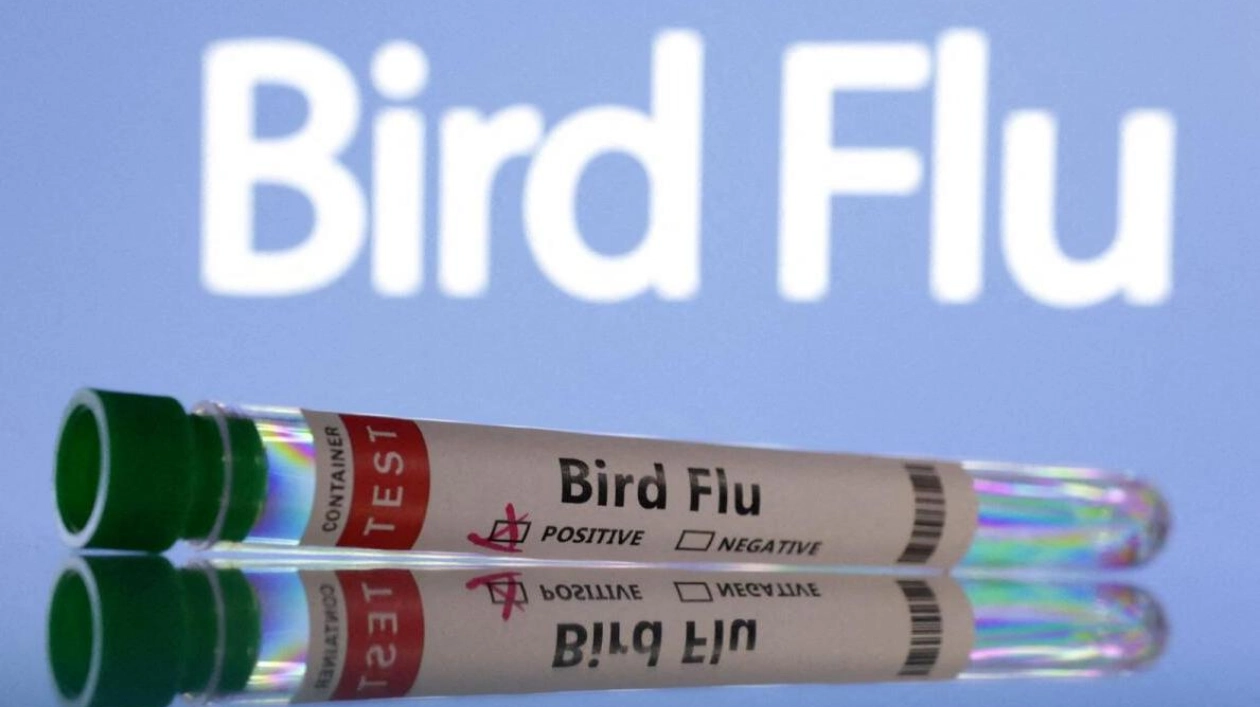Test tubes labeled 'Bird Flu' are shown in this illustration taken on June 10, 2024. – Reuters
Health experts have raised concerns about the potential pandemic threat posed by bird flu, which has shown signs of mutation as it spreads among cows and infects people in the United States. While there is no certainty that bird flu will ever transmit between humans, US health authorities have stressed that the risk to the general public remains low. The deadly H5N1 bird flu variant first appeared in China in 1996, but over the past four years, it has spread more widely than ever before, reaching previously untouched regions like Antarctica, home to penguins. More than 300 million poultry birds have been culled or killed since October 2021, while 315 species of wild birds have died across 79 countries, according to the World Organisation for Animal Health. Mammals that consumed infected birds, such as seals, have also experienced mass die-offs. The situation escalated in March when the virus began spreading among dairy cows in the United States, a first. Fifty-eight people in the US have tested positive for bird flu this year, including two with no known exposure to infected animals, according to the Centers for Disease Control and Prevention. There are also concerns that some human cases may be undetected. Researchers found that eight out of 115 dairy workers tested in Michigan and Colorado had bird flu antibodies, suggesting a seven percent infection rate.
Meg Schaeffer, an epidemiologist at the US-based SAS Institute, told AFP that several factors now suggest 'avian flu is knocking on our door and could start a new pandemic any day.' A New York Times opinion piece last month warned that 'a bird flu pandemic would be one of the most foreseeable catastrophes in history.' While there are still barriers preventing H5N1 from spreading easily between humans, research published in the journal Science on Thursday showed that the version of bird flu infecting US cows is just one mutation away from being able to spread more effectively among humans. Virologist Ed Hutchinson of the University of Glasgow said this indicates H5N1 is 'a simple step' away from becoming 'more dangerous for us.' Genetic sequencing of a Canadian teenager with bird flu last month suggested the virus had started to evolve to bind more effectively to human cells. 'We do not yet know whether H5N1 influenza viruses will evolve to become a disease of humans,' Hutchinson emphasized. However, the more animals and species the virus infects, the more likely it is to adapt to better infect people, Schaeffer said. If a bird flu pandemic were to occur, it would likely be 'remarkably severe' in humans due to our lack of immunity. The US farm worker cases have been relatively mild so far, but nearly half of the 904 human cases of H5N1 recorded since 2003 have been fatal, according to the World Health Organization.
Tom Peacock, a virologist at Imperial College London, told AFP there are reasons to be 'less pessimistic about the possibility of a pandemic.' Antiviral treatments and vaccines are already available for bird flu, unlike the situation with Covid-19 in 2020. To prevent the worst-case scenario, many health researchers have urged the US government to increase testing and ensure information sharing between agencies and countries. On Friday, the US Department of Agriculture announced plans to test the country's milk supply for bird flu. Raw, unpasteurized milk, which has been repeatedly contaminated with bird flu, is of particular concern. Vaccine skeptic Robert F. Kennedy Jr., who is US President-elect Donald Trump's pick for health secretary, is known to favor raw milk. California raw milk producer Mark McAfee, whose products have been recalled multiple times due to bird flu, told The Guardian last week that Kennedy's team had approached him to advise on the upcoming administration's raw milk policy. Schaeffer said any suggestion of lifting restrictions on raw milk would be 'unequivocally a terrible idea and definitely jeopardizes human health.'
Source link: https://www.khaleejtimes.com






